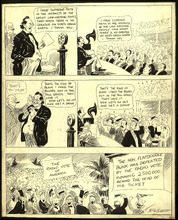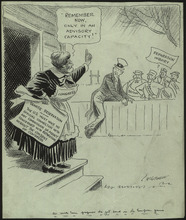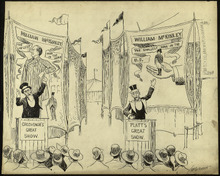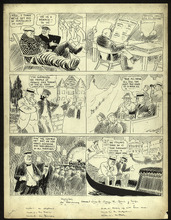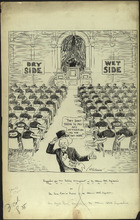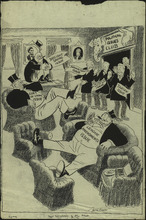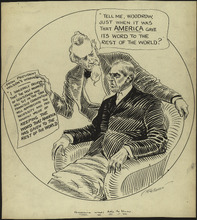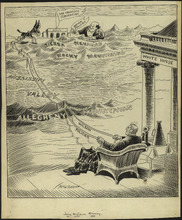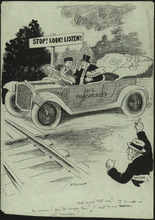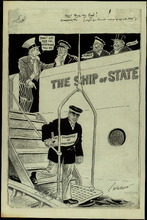Description
This cartoon depicts many issues leading to political discourse during the late 1910s in the United States. The old sources of political discourse such as "prohibition issue", "he kept us out of war issue", and "tariff issue" have been displaced by the overgrown and overwhelming new issues. The "prohibition issue" refers to the question of whether alcohol should be a legal substance in the United States. The "he kept us out of war issue" refers to the fact that, despite his promise, the United States entered World War I under President Wilson. The "tariff issue" refers to what goods (if any) should have a tariff placed on them to protect the economic interests of the United States. The new issues overtaking the room were a relatively new source of political conflict. The "league amendments issue" refers to the United States entering the League of Nations. If the United States had joined the League of Nations, it would have to surrender some of its national sovereignty, which made it an unacceptable option to many politicians. The "cost of living" was a relatively new issue in the United States. It refers to the unusually high cost of necessary items, while many worker's wages remained low by comparison. The "daylight savings issue" refers to the issue of whether the United States should continue to use daylight savings time. The United States had adopted daylight savings time in 1918. Many countries adopted daylight savings during World War I as a way to lower the need to use coal. The transition to daylight savings time had been problematic, and many in the United States thought it should be abandoned. (Summary created by Mary Delano, MU History Intern, Spring 2018)
